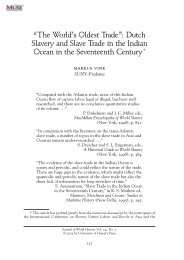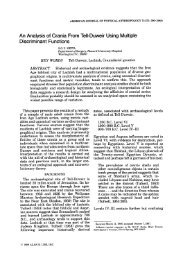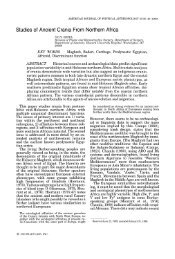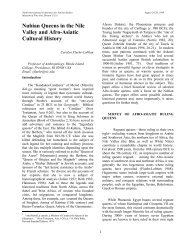THE FALSITY OF HEGEL'S THESES ON AFRICA
THE FALSITY OF HEGEL'S THESES ON AFRICA
THE FALSITY OF HEGEL'S THESES ON AFRICA
You also want an ePaper? Increase the reach of your titles
YUMPU automatically turns print PDFs into web optimized ePapers that Google loves.
Camara / HEGEL’S <strong>THE</strong>SES <strong>ON</strong> <strong>AFRICA</strong> 85<br />
très grande sensibilité” [The Negro-African is a man of nature. The<br />
abundant environment gave him a heightened sensuality] (p. 202).<br />
Africa, thus, was this rich continent but shut up to external currents.<br />
Hegel has already expressed this position:<br />
Africa proper ...isthegold-land compressed within itself—the<br />
land of childhood, which lying beyond the day of self-conscious<br />
history, is enveloped in the dark mantle of Night. Its isolated character<br />
originates, not merely in its tropical nature, but essentially in its<br />
geographical conditions. (p. 91)<br />
For Hegel, Africa’s isolation resides not only in the African but<br />
mostly in an inaccessible geographical environment:<br />
A griddle of marshland with the most luxuriant vegetation, the especial<br />
home of ravenous beasts, snakes of all kinds—a border whose<br />
atmosphere is poisonous to Europeans. This border constitutes the<br />
base of a cincture of high mountains, which are only at distant intervals<br />
traversed by streams, and where they are so, in such a way as to<br />
form no means of union with the interior. (p. 92)<br />
This isolation excludes Africa from the theater of history that, of<br />
course, in Hegel’s mind is the European world. Hegel affirms, “For<br />
[Africa] is no historical part of the world; it has no movement or<br />
development to exhibit” (p. 92), which is why Negroes cannot<br />
accede to the notion of objectivity. Even when they distinguish<br />
themselves from nature, they are still at an inferior level in the processes<br />
of humanization because they are overwhelmed with sensations,<br />
instincts, and passions. Hegel states,<br />
In Negro life the characteristic point is that consciousness has not<br />
yet attained to the realization of any substantial objective existence—as<br />
for example, God, or Law—in which the interest of<br />
man’s volition is involved and in which he realizes his own being.<br />
This distinction between himself as an individual and the universality<br />
of his essential being, the African in the uniform, undeveloped<br />
oneness of his existence has not yet attained; so that the knowledge<br />
of an absolute Being, an Other and a Higher than his individual self,<br />
is entirely wanting. The Negro, as already observed, exhibits the<br />
natural man in his completely wild and untamed state. (p. 93)




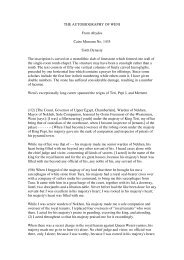
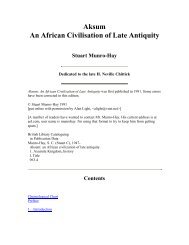
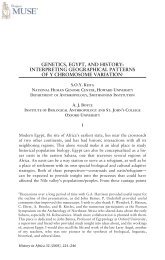

![The Negro trail blazers of California [microform] : a ... - Homestead](https://img.yumpu.com/32436613/1/174x260/the-negro-trail-blazers-of-california-microform-a-homestead.jpg?quality=85)
